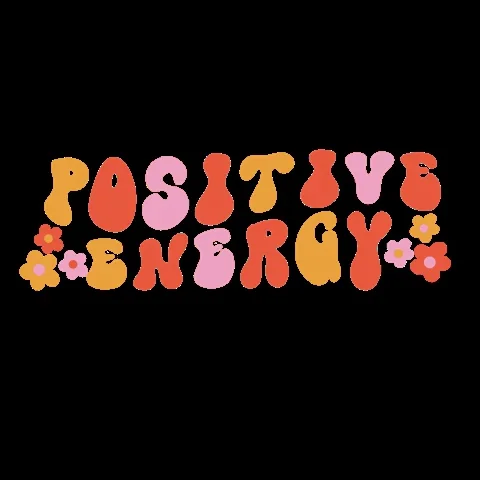 Photo by Brett Jordan on Unsplash
Photo by Brett Jordan on UnsplashThe concept of PERMA was created by psychologist, Martin Seligman. While most psychologists unearth the negative in a person's life, Seligman chose to focus on more positive aspects.
He developed the PERMA model as a guide for achieving a flourishing lifestyle.
PERMA stands for:
Positive Emotions
Engagement
Positive Relationships
Meaning
Accomplishments
Each element shouldn't be pursued in and of itself but in support of each other. Positive emotions lead to engagement, which leads to positive relationships, and so on.
As your starting point toward improving your well-being, the PERMA model can lead you to a flourishing and enjoyable life!
1. Positive Emotions

Positive emotions are optimistic — that is, hopeful and confident about the future. Optimistic people see failure as part of success. They'll bounce back from their failures and setbacks and won't let it get them down. Optimistic people are in control of their lives.
Seligman calls this learned optimism. Those with learned optimism can generate positive vibes and emotions and keep moving toward their goals.
 Generating positive emotions to improve your well-being:
Generating positive emotions to improve your well-being:
Spend time with people you care about — family, friends.
Engage in hobbies and creative things.
Tune in to some uplifting songs and music.
Think about the positive things in your life.
Ponder on things you're grateful for.
Realize your mistakes are stepping stones to success.
2. Engagement
 Photo by Unseen Studio on Unsplash
Photo by Unseen Studio on UnsplashEngagement is the act of being totally immersed in your life activities, so much so that you lose track of all time. In this state of flow, you become fully involved in your activity and you have balanced your efforts with your rewards. You find your stride and are neither bored nor anxious.

Achieve a state of flow to improve your well-being:
Have a "strong sense of curiosity."
Possess a "persistent drive to explore and master new challenges."
Focus on the activity and not how it might benefit you.
Be invested or passionate in an activity purely for the sake of engagement.
3. Positive Relationships
 Photo by Alex Bracken on Unsplash
Photo by Alex Bracken on UnsplashWanting to belong is a facet of our hierarchy of needs — a psychological model created by psychologist Abraham Maslow that represents the needs that all humans have. We all need air, food, and water, but we also need relationships to fulfill our sense of self-worth.
Positive relationships — those that allow us to be seen, heard, and loved — offer us this feeling of belonging.
 Fostering positive relationships to improve your well-being:
Fostering positive relationships to improve your well-being:
Family: Have a movie or date night, play a board game, turn off the electronics then talk to each other, take a family vacation, celebrate holidays or accomplishments, or visit a museum together.
Friends: Have coffee or tea time, or reach out to someone you haven't talked to in a while.
Community: Get involved with social events or gatherings.
Colleagues: Have lunch with a coworker, send an uplifting positive note, get to know a coworker better, and build friendships with colleagues.
4. Meaning
 Photo by Clark Tibbs on Unsplash
Photo by Clark Tibbs on UnsplashDon't wait for a mid-life crisis to contemplate your meaningin life!
Meaning has to do with finding purpose in your life. Ever feel like you're connected to some greater purpose? Feeling you're connected to something greater than yourself or feeling valued can help you find meaning.
Finding meaningin our lives is as important to our well-being as food and water. Without meaning, life becomes...well... not worth living! Where do you find meaning and purpose in your life?
Reflect on:
Your work, activities, or life pursuits. How do each contribute to society?
Your job and career. What determines your satisfaction?
Your passions. How can you use them to help others?
Find meaning to improve your well-being:
Participate in a religious or spiritual quest.
Mentor a colleague or youth in your community.
Volunteer to care for others.
5. Accomplishments
 Photo by GR Stocks on Unsplash
Photo by GR Stocks on UnsplashHave you ever worked tirelessly to accomplish a goal? Maybe you wanted to win a race or a competition, or master playing an instrument.
How did you feel when you finally did it? Elated? Excited? Proud? These are feelings associated with achievements and accomplishments that elevate your overall well-being.
Perhaps the most rewarding part of achieving is the self-motivation. It gives you a sense of pride at having finished what you set out to doand contributes to your feeling of well-being.
Pursue accomplishments to improve your well-being:
Start by setting SMART goals that are specific, measurable, attainable, realistic, and time-bound.
Think about your past achievements. What worked? What didn't?
Reward yourself when you achieve your goal.
Learn something new.
Quiz
Jan has been feeling a bit stuck in her life, both at work and in her personal life. How can she use the PERMA model to enhance her overall well-being and find fulfillment? Select all that apply:
Take Action
 Photo by Mason Kimbarovsky on Unsplash
Photo by Mason Kimbarovsky on UnsplashBy establishing positive emotions through pleasurable things, engaging in activities, fostering positive relationships, finding purpose and meaning, and achieving your goals you can be well on your way to a flourishing and enjoyable life.
Put what you've learned about PERMA to work for you! Maximize the positive effects by exploring optimism, flourishing, building relationships, and setting goals with these Bytes:
Your feedback matters to us.
This Byte helped me better understand the topic.



